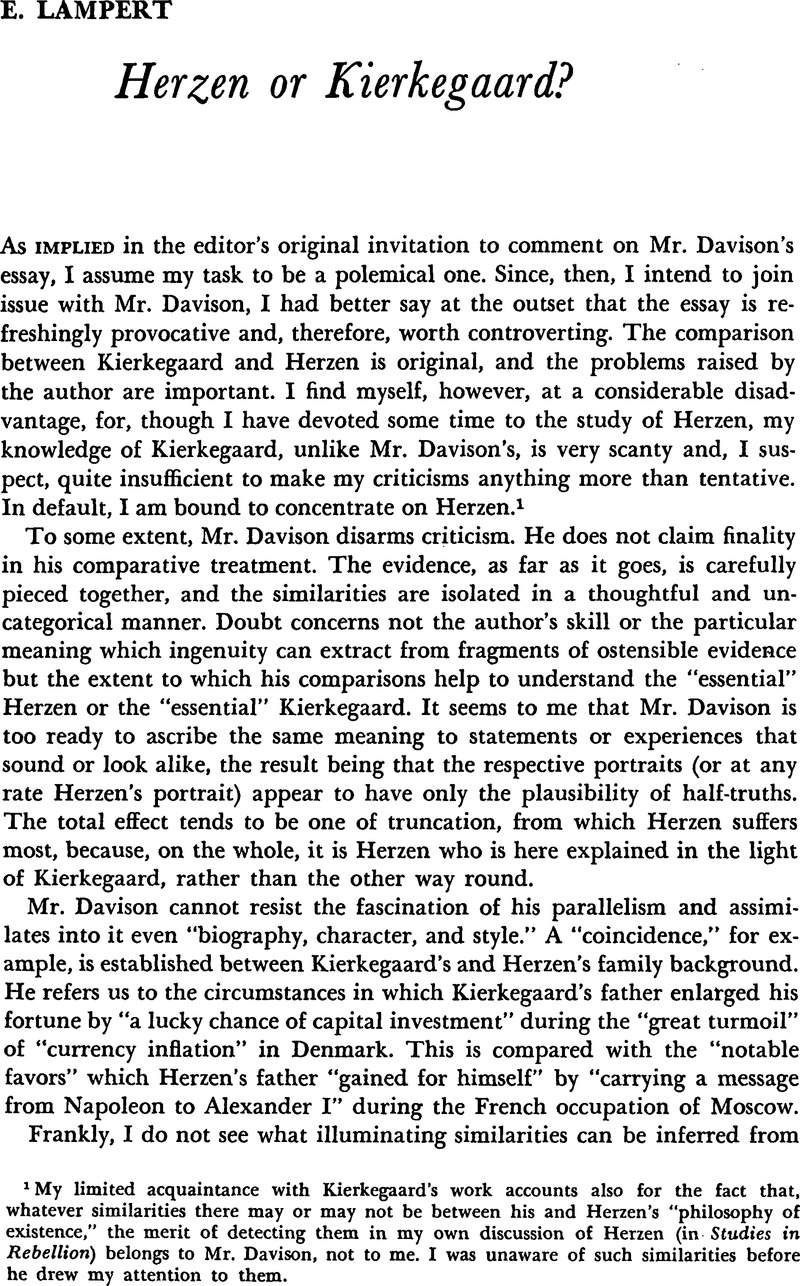No CrossRef data available.
Article contents
Herzen or Kierkegaard?
Published online by Cambridge University Press: 27 January 2017
Abstract

- Type
- Discussion
- Information
- Copyright
- Copyright © Association for Slavic, East European, and Eurasian Studies. 1966
References
1 My limited acquaintance with Kierkegaard's work accounts also for the fact that, whatever similarities there may or may not be between his and Herzen's “philosophy of existence,” the merit of detecting them in my own discussion of Herzen (in Studies in Rebellion) belongs to Mr. Davison, not to me. I was unaware of such similarities before he drew my attention to them.
2 Mr. Davison cannot be serious in making Herzen dismiss revolution as a mere “bloody battle cry.” But the tendency is familiar among Western writers on Herzen. I would remind Mr. Davison of Herzen's own words addressed to Mazzini (letter of September 13, 1850) and specifically referring to “Omnia mea mecum porto” in From the Other Shore: “What I demand,” he wrote, “what I preach is a complete break with incomplete revolutionaries: they reek of reaction two hundred yards away.“
3 It should be noted that the term “science” (nauka) among Herzen's Russian contemporaries was used primarily with reference to Hegelian philosophy or to philosophy in general. It did not necessarily denote “natural science.“


